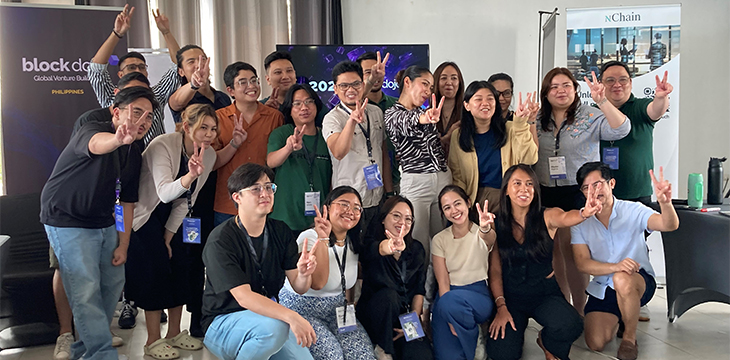
|
Getting your Trinity Audio player ready... |
Are you planning to venture into the blockchain enterprise world? If you’re from the Philippines, Block Dojo may be able to help you.
Block Dojo Philippines’ second bootcamp, held in Bataan in May, has jumpstarted the nine startups of cohort 2 to explore blockchain and how they can incorporate it into their businesses.
On their first day, the cohorts get to know each other and what they should expect in the next 12 weeks of the program. During the second day, CoinGeek covered the program’s flow, which centered around blockchain and design thinking. Day 3 looked into the customers and the big idea in enterprise, taking advantage of the afternoon for pitch practice sessions. Lastly, on Day 4, the cohort 2 founders traveled from Morong to Balanga to see the local startup scene of Bataan and learn more about what the province has to offer.
Getting to know Block Dojo Philippines’ Cohort 2
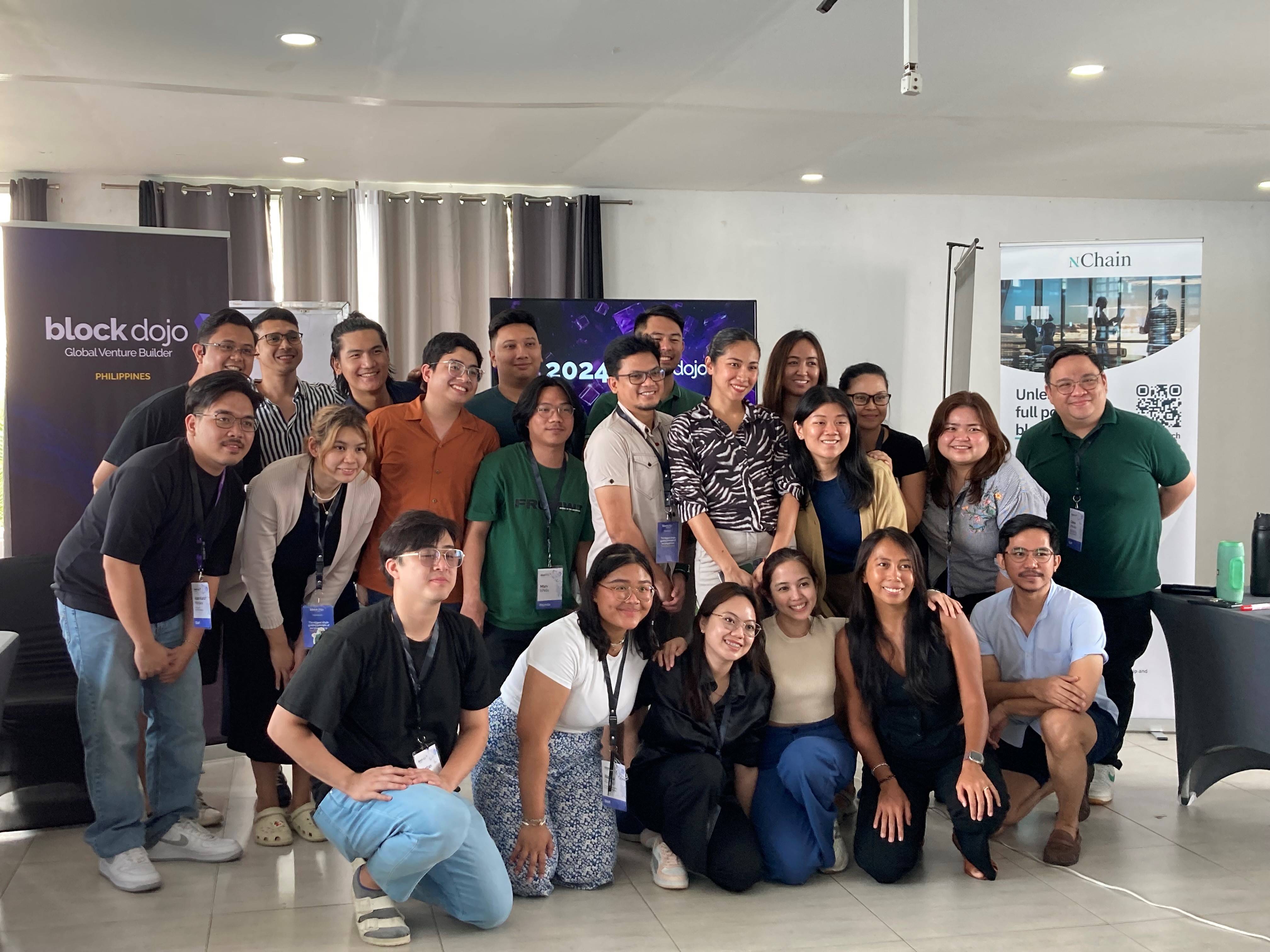
The cohort 2 startups comprising of founders with different agendas are:
- Clarice Cabanlit – a personal life coach spreading awareness about students’ mental health;
- Misako Kojima and Germaine Gaerlan – co-founders of Keri, an app looking for ways to make homecooked meal supplies more accessible for merchants;
- Johannes Cortez and Marv Ishida – co-founders of the fitness app Fit2Gether (formerly Touch Grass), which aims to make fitness easier for Filipinos
- Gino Sampedro – founder of CertifyED, a certification tool for educational institutions that utilize blockchain
- John Dometita – founder of Pettopass, an app he develops to track and access all of pets’ needs
- Jynon Mapa – founder of Park King, a parking and transportation app that integrates emerging technologies like IoT
- Pierre Legislador – founder of Upraised (formerly Housewell), a house rental sharing app focusing on renovation and renting
- Rovelyn An Caoile – a Web3 and Tech enthusiast who is working on a subscription retention app that makes use of AI
- Isis Umali – CEO of Likhaan, an e-commerce app that sells and promotes Filipino Indigenous products
With Block Dojo Philippines, these nine startup founders will undergo 12 weeks of rigorous training, inching them towards a PHP500,000 ($8,529) initial cash investment and PHP12.1 million ($206,419) program actual value. At the end of the program, these businesses will be introduced to relevant investors who will help them secure pre-seed funding.
Blockchain at the center of it all
Block Dojo Philippines is powered by nChain, a global firm that helps its clients to utilize blockchain technology in their products, solutions and services.
On Day 2, Stephanie Tower, the Business Development Lead – Philippines of nChain, and Block Dojo’s Managing Director Kristoffer Briones, conducted a question-and-answer session with cohort 2 after giving them a glimpse of what the firm had done at ComplexCon Hong Kong.
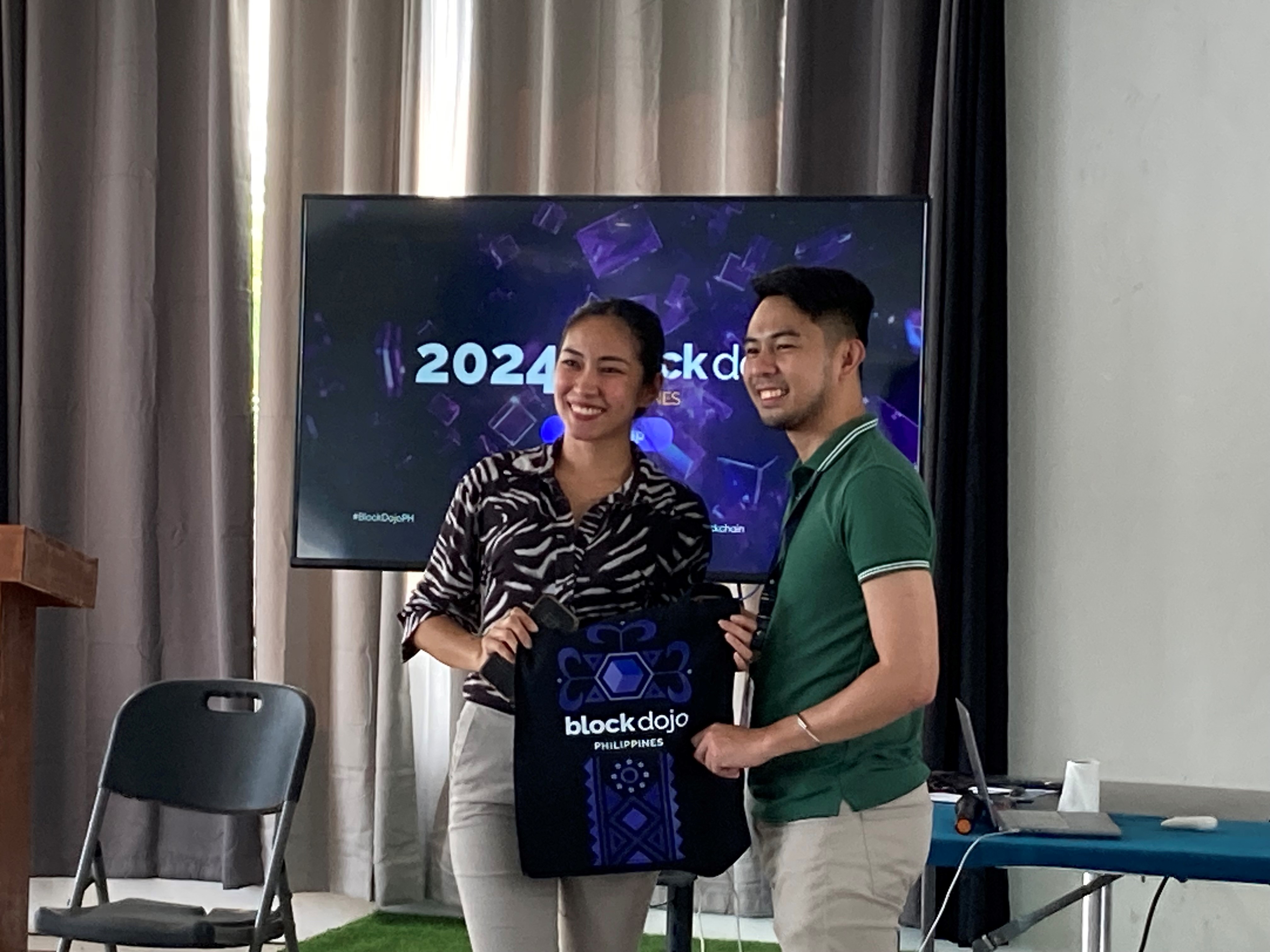
“At the end of the day, people don’t really have to know that what you actually do is built on top of a blockchain,” Tower began the Q&A. “People don’t need to know that, the same way that we’re using so many codes in the protocol…If you’re asked what blockchain is, just say it’s another technology where you could build solutions on top of.”
Stephanie Tower (@stephtowerMNL) is at the #BlockDojoPH bootcamp today! Follow n'yo kami to learn more about blockchain with @nChainGlobal!#BlockDojoPH #Bataan #startups #BlockDojoPhilippines pic.twitter.com/BG1S6nEpoG
— CoinGeek Philippines (@RealCoinGeek_PH) May 14, 2024
Tower explains more about the technology, saying that in a more technical aspect, blockchain is a decentralized timestamped ledger that allows information to be stored and recorded interoperably. Setting out an example of applying for a Japanese visa, with the tech, applicants don’t have to do transactions or answer a form from one agency to the other since the data has already been stored in the blockchain without it getting distorted, thanks to the technology’s immutability and transparency.
“[Blockchain] enables a more efficient way to process things,” she pointed out.
Day 2 wraps up with Design Thinking hosted by Marc Wernicke, co-founder of Dailo-Wernicke Consulting firm. Wernicke, like in his previous presentation at the first bootcamp, created several activities that boosted the creativity of the nine cohorts.
Activities to get started
Speaking of activities, on Day 3, Block Dojo Philippines prepared some exercises to get the minds of cohort 2 running. Spearheading it was Dominic Santiago, Block Dojo Philippines’ head of marketing, who discussed how advertisements could impact customers and the importance of discovering a target persona in the journey of creating a business.
“Today, this whole session that I’m going to work with you is welcoming you to the journey to the center of your business,” Santiago began his discussion. In his presentation, he taught cohort 2 to discover their customers’ insights and learn their business’s unique traits by introducing the elements of advertising.
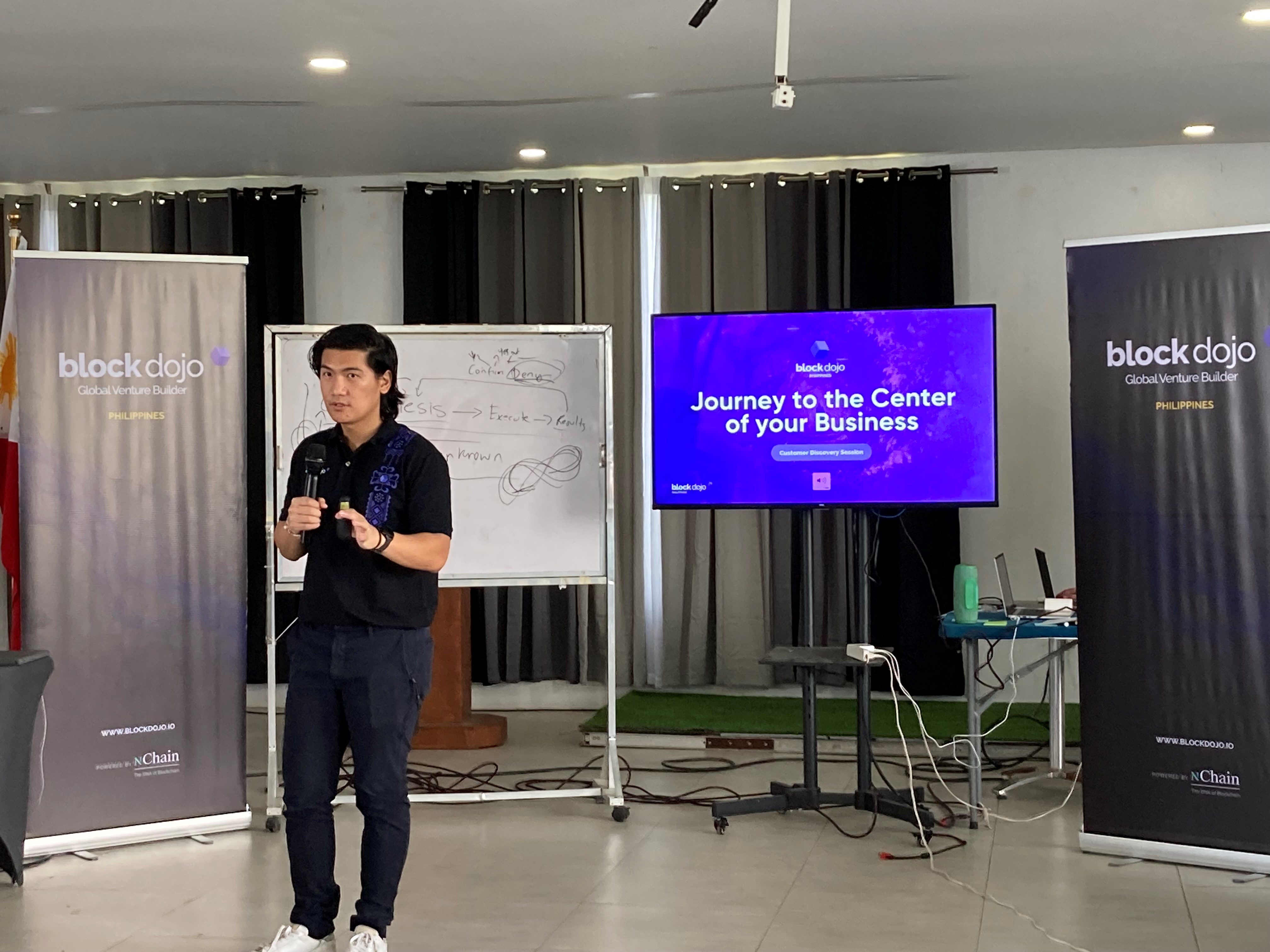
“[Insights] can mean different things to different people,” he told the startups’ founders. “Number one, problems are barriers…there is a hidden motive, something that is not currently addressed in the current market offering. And finally, it needs an ‘Aha [moment]’—a twist.”
Santiago added, “An insight needs to be actionable,” concluding that “Insights is not merely a marketing campaign. [Instead] insights will help you become domain experts, which will translate to your BMC, which will also translate to your impact.”
Meanwhile Michael Cua did a two-hour activity about big ideas. During the latter part of this activity, he encouraged everyone to integrate AI in creating their business description prompts. Driving a point home that, what the startups should keep in mind is to convince their customers that they are offering a real-world need.
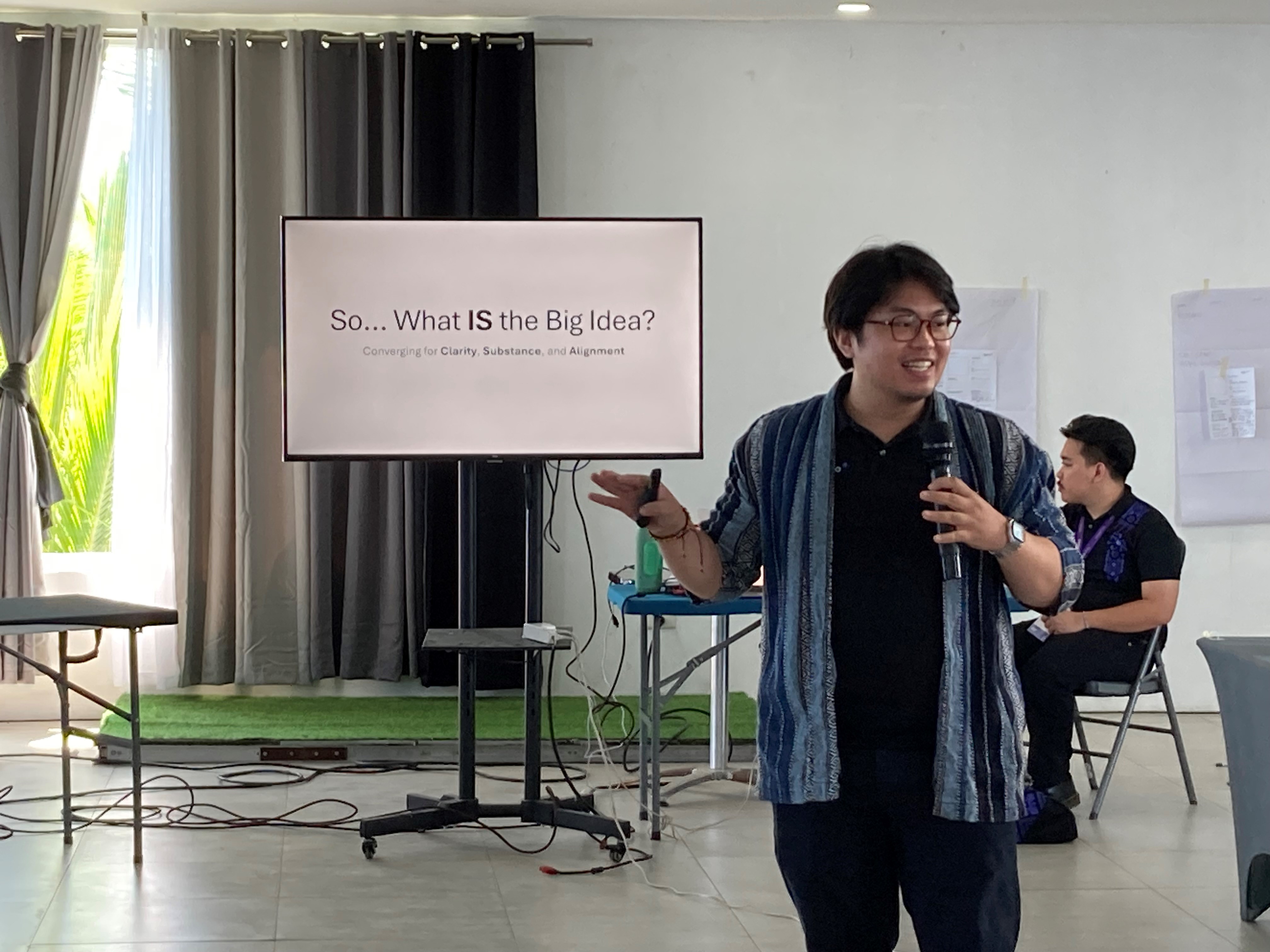
“Sapientia Et Eloquentia. Wisdom and eloquence,” Cua said. “It’s not enough that you have a clear vision that aligns with the substantial vision of your business idea. It doesn’t matter that it matters to you. If people don’t understand why it should matter to them, that whole idea just exists in your brain.”
“We talked about clarity aligned with susbtance, what’s missing? Persuasion. You have the thing, now can you communicate it to other people?” Cua added.
The nine cohorts closed the day by introducing each of their companies, who they are, and what they aim for in a practice pitch. Each pitch was improved with 1:1 mentorship with the Block Dojo Philippines team and feedback from the cohort.
Connecting with Bataan’s local government unit and startups
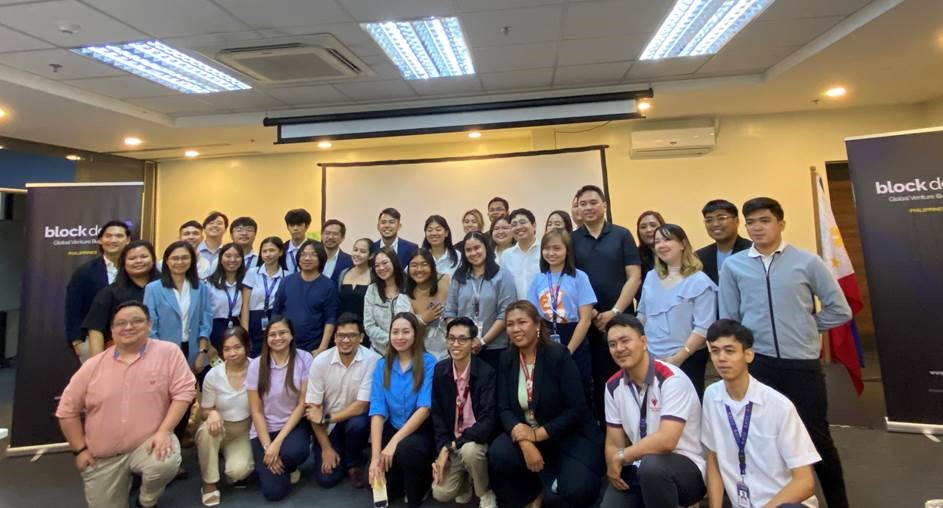
On Day 4, the last full day of the Block Dojo Philippines bootcamp 2, the cohorts met up with ReGen—a startup committed to providing sustainable, renewable energy solutions through solar-powered generators—and Abul Khayr Alonto II, the department head of the Provincial Government of Bataan (PGB) who is also leading the Public Private Partnership Investment Center.
Alonto shared some of the projects that Bataan is working on and revealed that their province, particularly the Freeport Area of Bataan, is open to technological development as it is the first globally to accept blockchain projects.
If you’re also working on a startup and interested in participating in the next Block Dojo Philippines cohort 3, follow this link. Also, don’t forget to follow CoinGeek and our regional social media pages to stay ahead with more Block Dojo updates.
See you soon at the next Block Dojo Philippines bootcamp!
Watch Block Dojo Philippines Bootcamp: Filipino entrepreneurs embrace blockchain
Recommended for you
Lorem ipsum odor amet, consectetuer adipiscing elit. Elit torquent maximus natoque viverra cursus maximus felis. Auctor commodo aliquet himenaeos fermentum
Lorem ipsum odor amet, consectetuer adipiscing elit. Accumsan mi at at semper libero pretium justo. Dictum parturient conubia turpis interdum

 11-22-2024
11-22-2024


